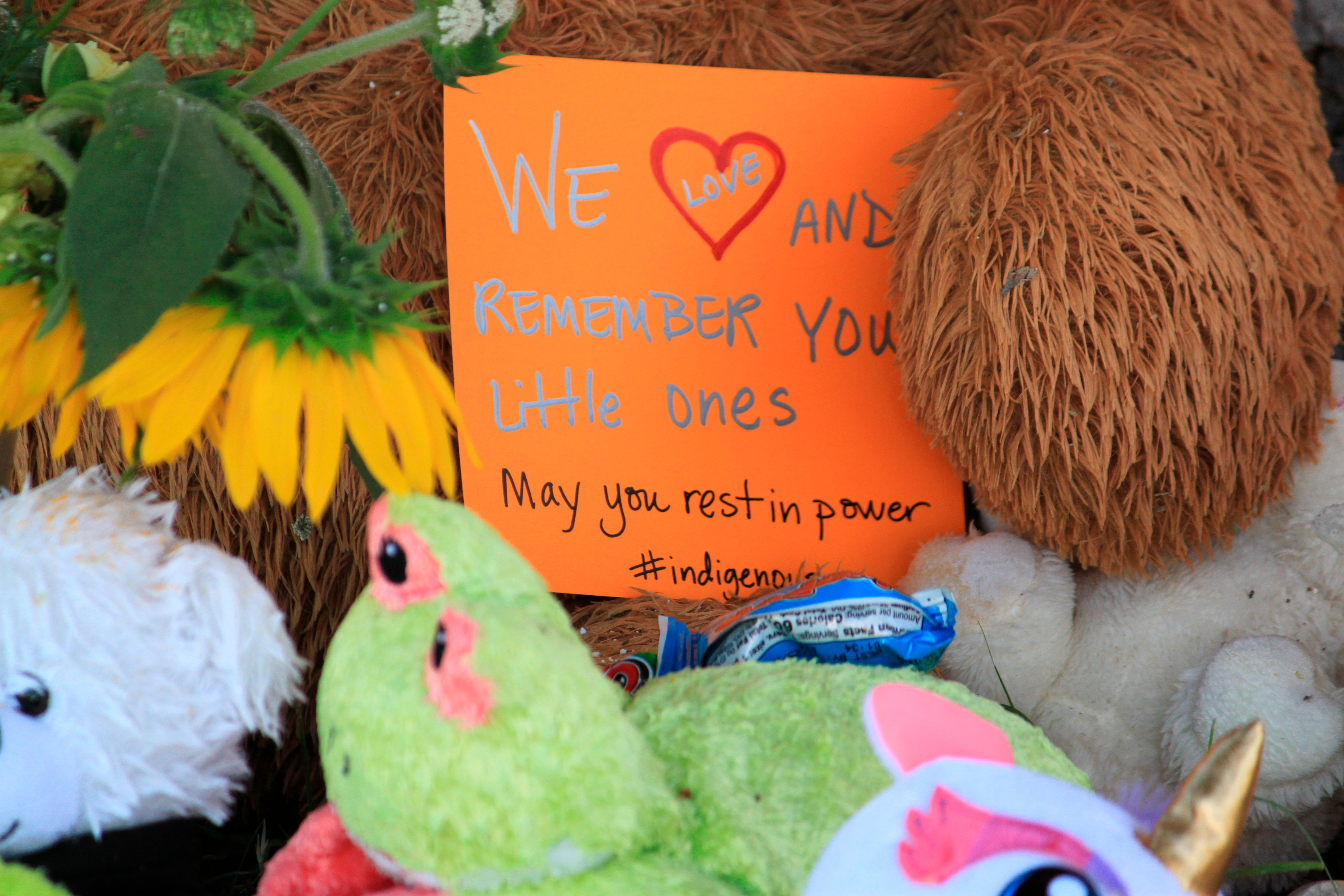Indigenous group questions removal of boarding school plaque
A historical plaque memorializing Indigenous children who died while attending a boarding school in New Mexico more than a century ago has gone missing

Your support helps us to tell the story
From reproductive rights to climate change to Big Tech, The Independent is on the ground when the story is developing. Whether it's investigating the financials of Elon Musk's pro-Trump PAC or producing our latest documentary, 'The A Word', which shines a light on the American women fighting for reproductive rights, we know how important it is to parse out the facts from the messaging.
At such a critical moment in US history, we need reporters on the ground. Your donation allows us to keep sending journalists to speak to both sides of the story.
The Independent is trusted by Americans across the entire political spectrum. And unlike many other quality news outlets, we choose not to lock Americans out of our reporting and analysis with paywalls. We believe quality journalism should be available to everyone, paid for by those who can afford it.
Your support makes all the difference.A historical plaque memorializing the dozens of Native American children who died while attending a boarding school in New Mexico more than a century ago has gone missing, sparking concern among Indigenous activists.
Members of the Coalition to Stop Violence Against Native Women are among those pushing the city of Albuquerque to investigate. The small plaque was in a park near the Indian Pueblo Cultural Center and the original site of the Albuquerque Indian School.
The plaque noted the site of a burial ground for students who attended the school between 1882 and 1933. They included children from the Navajo Nation Zuni Pueblo and Apache tribes.
The removal of the plaque comes as the U.S. government embarks on a nationwide investigation aimed at uncovering the troubling history of boarding schools that sought to assimilate Indigenous youth into white society over many decades. U.S. Interior Secretary Deb Haaland announced the massive undertaking last month while addressing tribal leaders from across the nation.
Advocacy groups have praised the effort as a first step toward acknowledging what many have referred to as a “dark history.”
Coalition member Jovita Belgarde — who is Isleta, Ohkay Owingeh and Turtle Mountain Band of Chippewa — said the discovery of the missing plaque added insult to injury. Many Indigenous families have been reeling since hearing about the bodies of hundreds of children being uncovered at the sites of boarding schools in Canada. The launch of the Interior Department's investigation also has stirred unresolved feelings in the U.S.
Belgarde sees the recent taking of the plaque as a continuation of efforts to silence Indigenous voices and perpetuation of violence against Indigenous people.
“These atrocities — people talk about them like they’re in the past. These are not the distant past,” she told The Associated Press. “These actions left deep scars for many of our elders, our families, our friends ... and many people have not had any support to heal that trauma and have had to live with this pain and silence for generations.”
Albuquerque officials said Thursday they are working with tribal leaders, historical experts and others to determine the next steps with regard to the missing plaque. They also noted that a public art piece and a second plaque that references the history of the site are still at the park.
"As we continue to work with the respective leaders on this issue, we urge the public to respect the cultural and spiritual significance of this site,” city parks director Dave Simon said in a statement.
With more light being shined on past boarding school policies, tribal governors from around New Mexico have advocated for accountability and justice.
All Pueblo Council of Governors Chairman Wilfred Herrera Jr., who is from Laguna Pueblo, said recounting what Pueblo parents and children experienced has been painful.
“While some of our children endured years of abuse for speaking our languages, practicing our cultures, and maintaining our traditions, the unbearable truth is that many of our young never returned to their Pueblo homelands, ever,” he said in a statement.
The Albuquerque Indian School was started in 1881 by the Presbyterian Church. It came under federal control a few years later and was among hundreds of known boarding schools across the country. The school closed in the 1980s, and the property was put into trust for New Mexico's 19 pueblos. The buildings eventually were torn down, and a tribal development corporation is working to make it a commercial hub.
Aside from determining the fate of the missing plaque, Belgarde said advocates want an investigation into the site overall in hopes of turning up more information about exactly how many children might have been buried there. She said the site demands more reverence, and city officials need to be transparent about how they proceed.